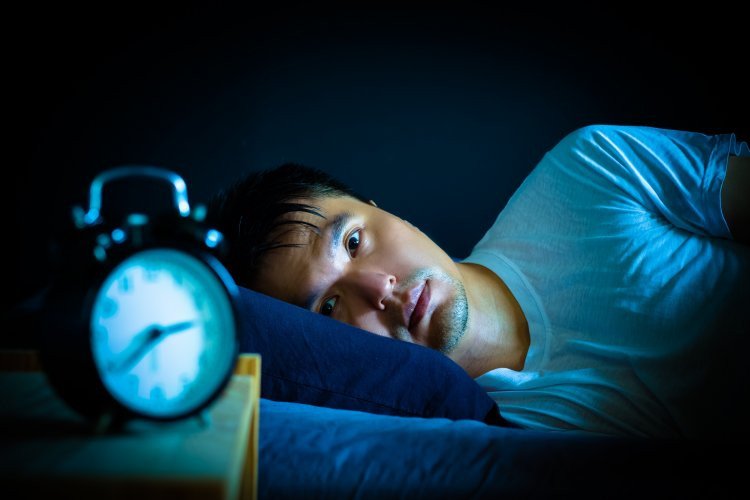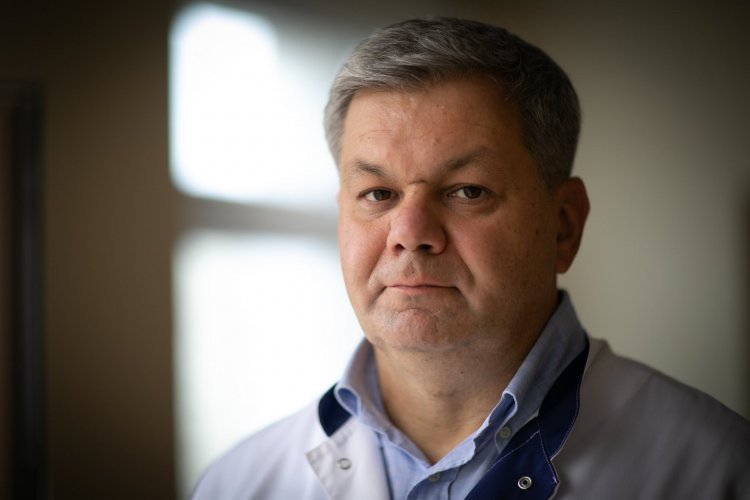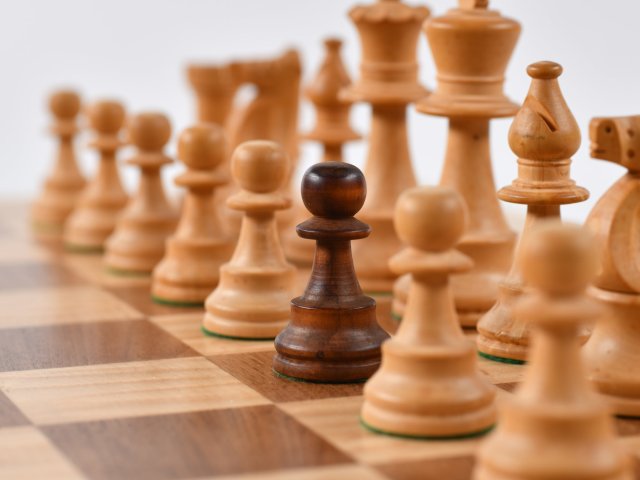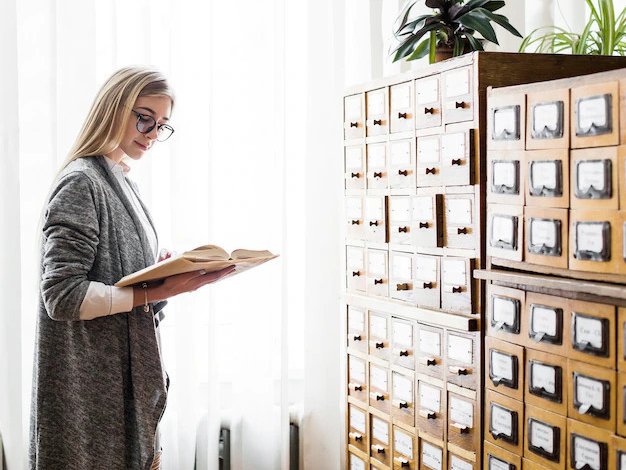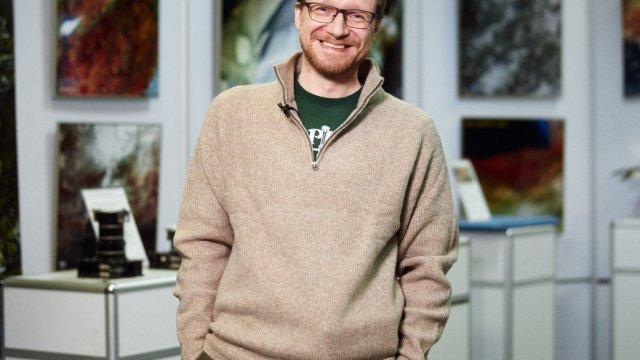Sleep is free medicine. When we are asleep, our bodies and brains rest, our body cells regenerate, and melatonin – the sleep hormone – is released. This is what happens during healthy sleep, which gives one a lot of strength and energy as well as a good mood and a healthy look.
But what happens to a person that sleeps badly, too little or even neglects to sleep altogether? There are two similar terms – insomnia and sleep deprivation. Insomnia results from poor sleeping environment, psychosocial stress, and/or medication. Sleep deprivation, on the other hand, develops when the person postpones sleep on account of work or other matters, feeling that the circumstances compel them to do so. One in five employed persons has issues with their sleep-wakefulness pattern. We think a lot, work a lot and deal with complicated issues, hence the stress and sleep deprivation. Chronic sleep deprivation results in damage to self-recovery mechanisms of the nervous system. Such people start having serious problems with going to sleep and quality of sleep, which is becoming shallow and fitful. That gives one headache and makes one feel broken down in the morning, instead of feeling fresh and cheerful.
The main factors in sleep problems
According to physicians, everything that happens in one’s life is directly relevant to one’s health. Therefore, for healthier sleep, one should eliminate the following factors that affect the body’s rest:
- Artificial light. Illumination devices, the use of gadgets in bed, and street lights certainly make it harder to relax and go to sleep.
- Working at night. Overwork renders one unable to switch to the rest mode and go to sleep when it is time to do so.
- Stressful experiences. Stress activates the central nervous system. The person experiences heightened anxiety, heightened motor activity, heightened brain performance, and then fear. This certainly prevents healthy sleep.
To prevent deterioration of night rest, specialists also advise against taking:
- Coffee and chocolate. Caffeine in both those products inhibits the release of melatonin.
- Medications that excite that central nervous system. Such as nootropics, antihistamines, and neuroleptics.
-
Alcohol (especially when taken as a sleep aid). Tolerance is a factor here. When tolerance develops, the body can no longer go into the sleep mode unaided.
Another thing: no heavy food in the evening. The richer the dinner, the longer it takes to digest it. That means, the body will not go into the rest mode.
Sleep deprivation in numbers
According to NAFI Research Center, Russian citizens have recently slept less and worked less productively. 47% of the respondents admitted that they did not get enough sleep on weekdays. This number has been quite stable in recent years. Moreover, the average number of days when employed Russians do not get enough sleep goes up every year: it was 3.75 days in 2017, 3.86 days in 2018, and 4.19 days in 2019. The percentage of those who do not get enough sleep five days a week have increased compared to last year (38% vs. 32%). The need to work and study overtime remains the main cause of sleep deprivation. 32% of the respondents mentioned this cause (it was 39% in 2018 and 30% in 2017). Leisure activities at home are another factor (mentioned by 27% of the respondents): TV programs, computer games or reading books till late at night. Age and health issues were mentioned by 22% of the respondents. Other causes of sleep deprivation are: a baby in the family (15%), environmental factors, such as noise, light, uncomfortable temperature (8%), and domestic matters (4%). Six percent (6%) of the respondents complained of their spouse’s snoring.
Aleksandr Leonidovich Kalinkin, Candidate of Medical Sciences, Head of the Sleep Medicine Center of the University Clinic of Lomonosov Moscow State University, cardiologist, somnologist
Why does the modern person sleep less? Aleksandr Leonidovich Kalinkin, Candidate of Medical Sciences, Head of the Sleep Medicine Center of the University Clinic of Lomonosov Moscow State University, cardiologist, somnologist, discussed this issue with Scientific Russia: “We know that sleep deprivation is typical for modern society. The average sleep hours have declined from 8 to 6 over the last 100 years. In some metropolitan cities, people sleep less than 6 hours a day.
The main adverse factor affecting sleep is artificial lighting. Society today is suffering from the excess of light at nighttime (from street lights, advertisement, gadgets). We call this light pollution. If there is too much light around one’s bed, this is one of the causes of one’s sleep issues.
We published a big study in 2018. We have interviewed over 5,000 people aged 20 to 40 from 331 populated settlements of the Russian Federation. The survey revealed that 40.9% felt too sleepy during the day, which happens when one does not get enough sleep or does not sleep well.
This affects quite a lot of processes, unfortunately. Sleep deprivation does not just make one feel worse, causes excessive sleepiness, mood and social adaptation issues, it leads to changes in genome activity. It's been proven that if a person sleeps just 1 hour less than is normal (7-9 hours of healthy sleep), that changes the activity of multiple genes that are the main factors in cardiovascular diseases, endocrine and immune disorders. This is because sleep and immunity are practically synonyms. The less one sleeps, the more likely one is to contract any viral infection.
Prolonged chronic sleep deprivation has grave consequences for the person’s health and for society. Not getting enough sleep affects cognitive functions, increases anxiety and distraction.
What is to be done about it? Firstly, one should reconsider one’s attitude toward sleep. Many people think that the less they sleep the more they are able to do. But that never happens. Secondly, one should know what is normal. The norm for adults is 7 to 9 hours of sleep. Thirdly, if one has sleep problems (there is over 80 described types of sleep issues), one must see a specialist, i.e., a somnologist, in order to address the issue and sleep better.
Studies show that the best time for going to bed is between 10 and 11 p.m.
Today, there is quite a large number of things affecting sleep, smoking and abuse of alcohol and energy drinks being among the main factors. Such people have fragmented sleep, and their breathing function deteriorates noticeably.
One of the main techniques for healthier sleep is to get up early and wake up at the same time every day. The earlier one wakes up, the sleepier one will feel in the evening. Keeping such hours both on weekdays and weekends is most important. This makes for optimal, healthy and consolidated sleep (without waking up at night).”
Sources: Factors affecting our sleep
Chronic sleep deprivation
NAFI Research Center. Statistics
Source of image in the text: princeoflove / Photo bank 123RF
Source of image on the homepage: davizro / Photo bank 123RF
